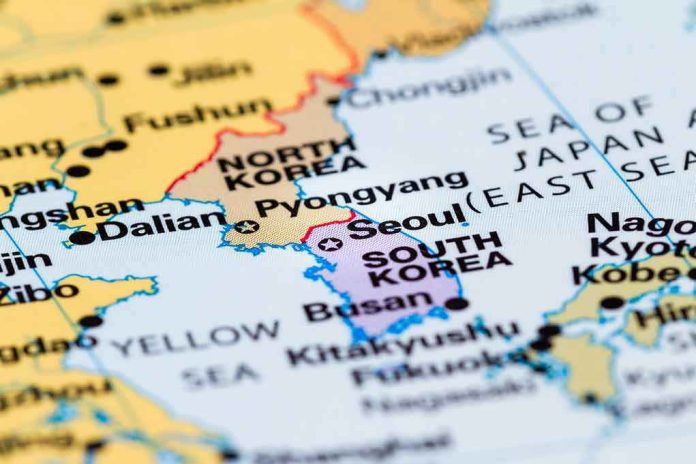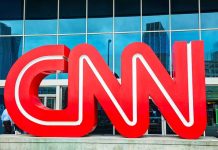
North Korea’s outright rejection of South Korea as a diplomatic partner signals a dangerous escalation, with Pyongyang vowing “preemptive” measures amid renewed U.S. military cooperation—raising grave concerns about future stability on the Korean Peninsula.
Story Snapshot
- Kim Yo Jong, sister of Kim Jong Un, declared North Korea will never accept Seoul as a diplomatic partner, sharply criticizing South Korea’s leadership.
- North Korea linked its hostile stance directly to ongoing U.S.-South Korean military drills, promising “immediate” and unspecified “preemptive diplomatic response” measures.
- These developments further freeze diplomatic relations and could provoke increased military and economic instability across the region.
- Expert analysis warns that the absence of engagement raises the risk of miscalculation and deepens the adversarial divide on the peninsula.
Kim Yo Jong’s Rebuke: Public Denunciation of Southern Outreach
On August 20, 2025, Kim Yo Jong, the influential sister of North Korean leader Kim Jong Un, publicly dismissed South Korea’s ongoing efforts to build diplomatic bridges. In her statement, she directly accused South Korean President Lee Jae Myung’s administration of perpetuating confrontation “whether it held the signboard of ‘conservatism’ or wore a mask of ‘democracy.’” The remarks, amplified by North Korean state media, marked a categorical refusal to accept Seoul as a legitimate diplomatic partner and reflected Pyongyang’s hardened stance during a period of heightened military activity and strained inter-Korean relations.
Diplomatic relations between North and South Korea have long been cyclical, but this latest rebuke stands out for its unambiguous tone and timing. Kim Yo Jong’s assertion that North Korea “will never” recognize South Korea in diplomacy coincided with large-scale U.S.-Republic of Korea (ROK) military drills, which Pyongyang views as existential threats. Historically, such military exercises have triggered North Korean escalation, including missile tests and rhetorical attacks, but the current episode is notable for the personal involvement of Kim Yo Jong—a figure whose influence over regime rhetoric and policy has grown significantly in recent years.
Strategic Timing: Military Drills and Diplomatic Tensions
The escalation comes as U.S. and South Korean forces conduct joint military exercises, a move that North Korea consistently condemns as preparation for invasion. In her statement at a rare Foreign Ministry meeting on August 19, Kim Yo Jong announced that North Korea would implement “immediate” and “preemptive diplomatic response” measures. Although specifics remain undisclosed, such language historically precedes increased provocations, including military displays and further diplomatic isolation. This pattern puts regional stability at risk and signals to allies and adversaries alike that Pyongyang will not tolerate what it perceives as encirclement or appeasement tactics from the South.
South Korean President Lee Jae Myung’s administration has attempted to break the deadlock through renewed outreach and peace initiatives. However, Kim Yo Jong’s rhetoric directly undermines these efforts, framing them as deceptive and rooted in decades of confrontation. Her criticism extends beyond party lines, suggesting that North Korea sees no meaningful difference between conservative or progressive governments in Seoul—a perspective that casts doubt on the viability of any near-term diplomatic resolution.
Expert Warnings: Risks of Miscalculation and Entrenched Hostility
Regional analysts and experts emphasize that Kim Yo Jong’s statements align with North Korea’s established pattern of responding to perceived threats with dramatic escalations in language and policy. The risk, however, is that the absence of substantive engagement heightens the potential for miscalculation—where a misunderstood move or inflammatory rhetoric could spiral into military confrontation. The rhetoric also serves the regime’s domestic interests, reinforcing the narrative of external threats to consolidate internal control, but it simultaneously diminishes space for moderate voices and practical diplomacy.
For the United States and its conservative allies, these developments underscore the enduring dangers posed by appeasement, unchecked military provocations, and failed outreach strategies. The U.S. commitment to defending its allies and deterring North Korean aggression remains critical, especially as Pyongyang’s leadership doubles down on isolationist and confrontational policies. The region’s defense and security sectors will likely see increased activity, while humanitarian and civil society organizations face even greater obstacles in delivering aid or fostering dialogue.
Regional Fallout: Economic and Social Consequences
The immediate fallout from North Korea’s rejection of dialogue includes increased anxiety in border regions, potential disruption of inter-Korean economic projects, and renewed uncertainty for families separated by the divided peninsula. South Korea may feel compelled to increase defense spending and harden its own policies, further entrenching the adversarial posture on both sides. Regional actors such as Japan, China, and Russia are closely monitoring developments, wary of any spillover effects that could destabilize the broader Asia-Pacific landscape. Ultimately, the episode highlights the persistent threat posed by authoritarian regimes that reject engagement and accountability, reminding American conservatives of the need for robust leadership and unwavering commitment to allied security.
Sources:
Kim Yo Jong dismisses Seoul as diplomatic partner in sharp rebuke of outreach efforts
Kim Yo Jong rejects South Korea as diplomatic partner, vows ‘preemptive’ steps
Kim Yo Jong warns of ‘preemptive’ steps as North Korea slams South’s outreach





